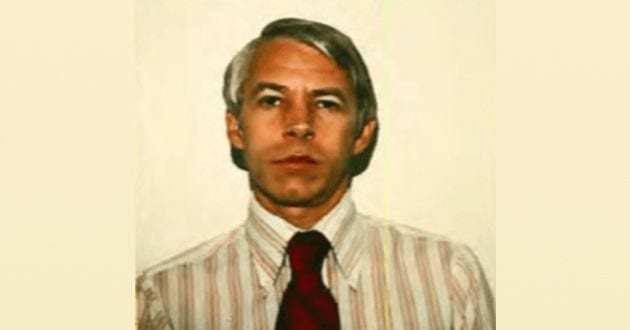After eight months, 50 hours of videotape and countless pots of coffee, Ohio State student Amira Soliman and OSU alumnus Derek Lindes are finally at a place where they are starting to be content with their project: a documentary film.
“It is really difficult to explain this movie to people because it sounds really boring off the bat, but it is really an exciting and worthwhile film,” Soliman said.
The pair were commissioned by Dave Williams, the lone theater professor at the Newark campus of OSU, to make a feature-length documentary film about a project he started about students writing and performing radio plays.
“He (Williams) intended on producing three radio plays and wanted to document what, to him, would be a groundbreaking and historic undertaking, or at least he thought it’d be a fun idea to document,” Lindes said.
Williams gave the pair creative control in making the film and, somewhat to his surprise, they focused heavily on Williams himself.
“I was maybe a little bit self conscious (at first), but I’m happier on stage than I am in real life, so after a while it was just like being on stage,” Williams said. “They really just sort of evaporated, but of course we were conscious they were there.”
The result is a film that exposes the dying art of radio plays and Williams’ efforts to revive interest in the performing arts in a small Ohio town where there is little.
The feature follows three groups of students, each with three members, as Williams helps them write and perform their original radio plays. The process and interactions in making the radio plays serve as a backdrop for Williams’ character as the film shows him engaging in his day-to-day challenges.
The film’s title, “Dionysus, Help Me,” alludes to Williams’ unspoken desire to call upon the Greek god of theater, Dionysus, for help in managing his often frustrating predicament.
Early in the film Williams says, “Many times I am here, but my mind is off in New York.”
Williams is shown yearning for talented actors and an audience to see them. His passion for theater is evident throughout the film as viewers witness his mixed emotions about loving his job and wanting to move on to something grander. When faced by a meager attendance for the opening night of the play Williams said, “You have to laugh or you’ll cry.”
“It almost seemed like he enjoyed being filmed since he is, after all, a theater guy and kind of likes to be the center of attention,” Soliman said. “He is a really open character and was always ready to be asked anything or filmed doing anything. He is really kind of a great subject in that way.”
Soliman, a senior in film production and international studies, said she was somewhat nervous about taking on this project, despite the fact that she has worked on several other large-scale film projects. Lindes, who graduated from OSU in 2004 with a degree in English, had worked on similar projects with Soliman, but had also never taken on such an expansive personal project.
The filmmakers, who both lived in the Columbus area, spent nearly four months driving to Newark to film Williams and his class. They also spent time talking with him at home and with his family.
Time was not the only obstacle. OSU just recently added a film theory major, but students wanting to learn how to make movies still have to forge their own way by creating a major. The pair took on the project as a personal endeavor and did not receive academic credit for their efforts.
“One of the most frustrating things is that our video and our audio is a little bit subpar,” Soliman said. “If we would have had a department that we could borrow things from it could have been different.”
The film has gone through its first editing stage and the pair is currently holding selective screenings to receive feedback. Further challenging the pair is that Lindes moved to Kaneohe, Hawaii, shortly after the completion of the first edit and they now plan to finalize their film by coordinating over the phone.
The next step is to seek a grant to help finish revising “Dionysus, Help Me.”
“I went to the Sundance Film Festival a couple months ago with a school group and we definitely spent a lot of time prepping the film and the trailer so I could take some samples with me,” Soliman said. “I talked to a lot of people there and handed out a few copies. It was very nerve-wracking because you go in thinking you have this big shot to pitch your film, but they really aren’t going to pick up your film right there. They are going to give you some feedback and tell you to keep in contact.”
Lindes also said he is committing a great deal of his time looking into opportunites such as film festivals to promote the film, as well as making trailers and planning changes for the next edit.
“We have a completed movie now, it just could be tighter,” Lindes said. “A new edit might make for a different finished product, but it does need more work tightening the pacing, sweetening the sound, et cetera.”
Williams said he had no particular expectations for the success of the film and he would ultimately be happy with any outcome.
“When the film is completed, I definitely want to submit it to film festivals because I think that is our biggest venue right now that we can be successful in,” Soliman said. “Derek is looking into other options like submitting it to Independent Lens, Public Broadcasting System and a few other channels. It is frustrating because I think the documentary is good enough to be on one of those channels, but technically it falls a little short. I think once we get some financing we will be able to smooth out a lot of the rough edges.”
The pair credited their experience in making this film as invaluable and they both look forward to working on future documentary projects of varying topics.
“Everything is interesting,” Lindes said. “All is in the one. You can find the universe in a drop of water or in an eccentric theater professor in Newark, Ohio.”


